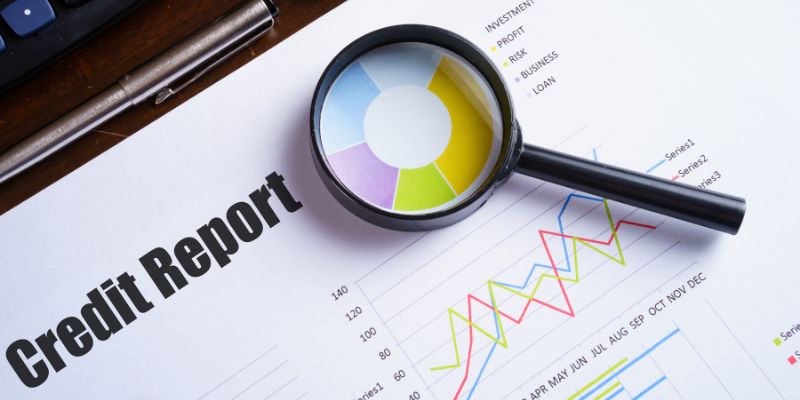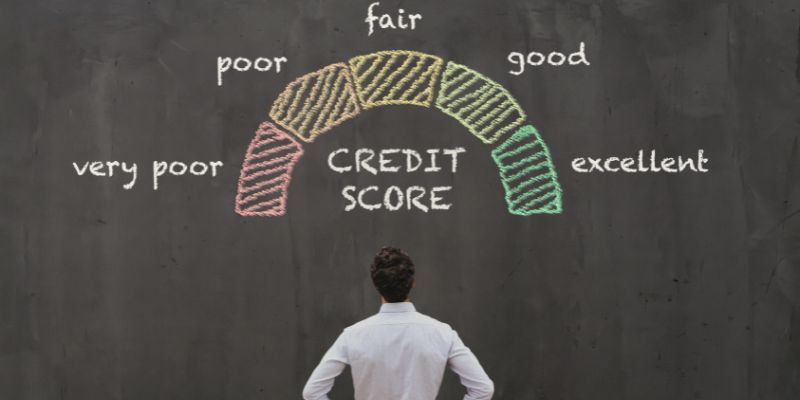How to Build Credit as a College Student: Strategies for a Strong Financial Future

As a student, you are building the foundation of your adult life—setting out on your own, making plans for your career, and taking the first steps in creating a solid financial future. But managing income and expenses on top of your studies can be difficult, and poor choices can set students up for financial difficulties down the line, causing financial stress in your post-college years and making it harder to achieve milestones like buying your first home.
We want to help our student customers start their first financial practices out on the right foot, and building good credit is an important part of that—that’s why we’ve chosen credit as the focus of this post. In this post, we’ll break down credit scores for students, discuss strategies for how to build good credit, as well as common credit mistakes to avoid during your college years. Keep reading to learn more!
Cracking the Credit Score Code: What You Need to Know
Before we delve into strategies, let’s break down the basics of credit scores and what goes into calculating them.
What is a credit score?
As we discuss in our Credit Score 101 blog, “a credit score is a three-digit number that reflects the creditworthiness of an individual.” Credit scores are used by lenders to help them qualify applicants for loans. The lower the score, the more likely they will default or be unable to repay the loan. General credit score ranges are:
- Excellent: 800 to 850
- Very Good: 740 to 799
- Good: 670 to 739
- Fair: 580 to 669
- Poor: 300 to 579
Factors that Affect Your Credit Score
Companies that generate credit scores use common credit factors in calculating individual scores. These include:
- Payment history: A good payment history means payments are made on time, each month, with no miss payments or delinquent accounts. Late payments of more than 30 days can affect your credit for up to 7 years, but the more recent the delinquency, the larger the impact.
- Credit utilization: This compares the amount of credit you have available vs. the amount of credit you’ve used. For instance, if you have a credit card with a limit of $5,000 and you have a $500 balance, you have a 10% utilization rate. Ideally, you’d keep this rate below 30% for all accounts.
- Length of credit history: Tracks the length of time you’ve had credit available to you, as well as how long your current accounts have been opened. The longer, the better.
- Types of credit: A good mix of credit can increase your score. This can include credit cards, car loans, home loans, consumer loans, and student loans.
- Recent credit inquiries: An occasional inquiry is expected, but too many recent inquiries looks like you are desperate for credit, and can negatively affect your score.
Importance of Maintaining a Good Credit Score
Credit can have far-reaching effects. Some benefits of good credit include:
- Easier approval for financing, including home loans.
- Lower interest rates for financing.
- Lower connection fees for utilities.
- Better candidate for rental applications.
- Lower insurance rates.
On the other hand, negative repercussions for no credit or poor credit can include:
- Possible denial of loan and credit card applications.
- May be unable to qualify for certain loan products.
- Higher interest rates.
- May be harder to obtain rental housing.
- Higher connection fees for utilities.
- Higher insurance rates.
 Credit-Boosting Tips: Real-World Strategies for College Students
Credit-Boosting Tips: Real-World Strategies for College Students
How to build good credit isn’t a mystery—there are few basic things you need to do, and no real shortcuts to doing so. However, if you follow the steps and tips outlined below, you will be on your path to creating a solid credit history.
Open a Bank Account
Building a relationship with a local bank can help college students without a long credit history gain a foothold into the financial world. When you apply for credit with institutions where you have an account, you may better qualify for loans or benefit from perks like lower fees or interest rates on loans. College students can choose a checking account with no monthly fees, mobile banking features, and access to a wide network of ATMs on or near campus.
Apply for a Secured or Student Credit Card
A secured credit card uses cash assets, like your bank account, as collateral, making it easier to qualify for. While traditional credit cards have strict rules about income history and steady income, student credit cards may have more flexible income requirements. They may also offer rewards and benefits tailored to college students, such as cashback on textbooks or discounts at popular student retailers.
As a student with limited income, it’s all the more important to avoid using credit cards for impulse purchases and trips, which can lead to high balances and long-term debt.
Become an Authorized User on a Parent's Credit Card
If (and only if!) a parent or guardian has good credit, becoming an authorized user can help you build your own credit history. Many parents and guardians will also add their students to their credit card to be used for emergencies or designated expenses while away at college.
Keep in mind that if the credit card bill isn’t paid, it will reflect badly on both your credit scores. And if the card is used for unagreed-upon purchases, it can create conflict. Having an agreement in place can avoid disagreements and discord.
Pay Bills on Time
If you consistently pay your credit card bill and other bills on time, such as rent and utilities, you can build the strong payment history necessary for a good credit score.
Set calendar reminders or use mobile banking apps to receive notifications about upcoming bill due dates to ensure timely payments. And remember, it’s better to pay late than not at all. Always try to pay on time, but keep in mind that as long as you pay within 30 days of a due date, your late payments won’t be reported.
Keep Credit Utilization Low
As we mentioned above, keep your credit utilization below 30% by paying off their balance in full each month and only using credit cards for purchases you know you can afford.
Monitor your Credit Report and Score
It’s important to stay on top of your credit report to know the negative activity that can affect your score. Request your free annual credit report from each of the three major credit bureaus (Equifax, Experian, and TransUnion) by visiting AnnualCreditReport.com.
While official scores used by lenders are never free, it may be possible to get approximate scores from credit monitoring services—just be aware that many charge hidden fees. Additionally, some credit cards will also supply you with your current score in your monthly statement.
Address Errors and Discrepancies
If upon reviewing their credit report you find an incorrect late payment or an account that doesn't belong to you, you can dispute these errors. Check out the Consumer Financial Protection Bureau’s guide, How do I dispute an error on my credit report?, to learn how.
Steering Clear of Credit Traps: Mistakes Every College Student Should Avoid
When you are first learning to manage your finances, it can be easy to fall into traps or make small mistakes that can lead to larger credit woes. Here are a few common pitfalls to avoid when building your credit:
- Not having a budget: When you don’t create and follow a spending plan, it can be easier to overspend, making it harder to pay off those balances each month. The FSA has great resources for budgeting for college students.
- Maxing out your credit card: When you ‘max out’ a card, you have a 100% utilization rate—which can quickly sink a credit score. Additionally, interest rates can cause that balance to balloon, making it more and more difficult to pay off and get out from under.
- Using credit cards for cash advances: Unless you pay off the balance, that cash advance is equivalent to a high-interest loan, and can create the conditions for a snowballing balance.
- Closing old credit accounts: When you close accounts, you increase your credit utilization rate because you decrease the amount of credit you have available. Unless you need to close an account, it’s better to avoid this practice.
- Using credit cards for tuition or other large education expenses: Because there are many other forms of credit for students that have lower interest rates and more flexible repayment terms, using credit cards for school-related expenses isn’t a smart financial choice.
How F&M Can Help
Whether you’re attending school in the Greater Oklahoma City Area, or are spreading your wings to other parts of the country, F&M can help you or the student in your life create a solid financial future.
From checking accounts with mobile banking and ATM refund fees (so you can access cash wherever you go) to credit cards to help you establish your credit, we offer the products and services you need to both build your credit and manage your money from OKC or afar. Stop by a branch in Edmond, Yukon, Guthrie, Piedmont, Crescent, Kingfisher, or contact us today to see how we can help.
Looking for more easy-to-follow strategies to set yourself up for long-term financial success? Visit the F&M Blog for a wealth of financial tips and resources.


